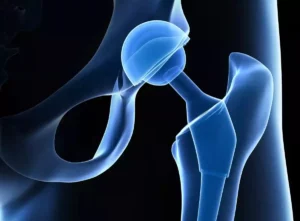Suffering a traumatic brain injury (TBI) is difficult enough, but research now shows that TBIs often lead to depression and anxiety. In fact, the Journal of Head Trauma Rehabilitation now recommends that victims of traumatic brain injuries all be screened for psychiatric disorders.
TBI and Anxiety
According to the Model Systems Knowledge Translation Center, anxiety can result from difficulty in logical reasoning or concentrating. These are also common symptoms of TBI. Someone with a traumatic brain injury might feel anxious without knowing why. They might also have a difficult time being in crowds, being rushed or adjusting to sudden changes in plans.
Other symptoms of anxiety include:
- Feeling worried with no particular explanation
- Being upset about making mistakes or failing at a task
- Panic attacks
- Ruminating over events obsessively
- Difficulty solving problems or making decisions
Time pressure and excessive stimuli, like loud noises or heavy traffic, can worsen a person’s anxiety.
Here are some tips for relieving anxiety after a traumatic brain injury:
- Reduce any unnecessary stresses and environmental factors that are adding to the anxiety.
- Add structured activity to your daily routine, such as an exercise program or a self-help group.
- Seek the help of a mental health professional. Counseling and/or certain medications might help reduce your anxiety.
TBI and Depression
Depression following a TBI could be the result of the injury itself, or the emotional aftermath of the injury. TBIs can cause chemical changes in the brain, which can contribute to depression and other psychiatric disorders. Depression could also occur after a TBI while the person is dealing with the ramifications of their injury. These might include long-term disability, changes in the person’s role in their family or their workplace, and other losses associated with the injury.
Symptoms of depression include:
- Feelings of sadness or worthlessness
- Changes in sleep or appetite
- Difficulty concentrating
- Lack of energy
- Loss of interest or pleasure in activities you once enjoyed
- Withdrawing from loved ones
- Thoughts of death or suicide
People suffering from depression after a TBI might be helped by:
- Antidepressant medications
- Counseling from a mental health professional familiar with TBI
- Aerobic exercise
- Structured activities
Depression often surfaces a few months after the initial injury. Feelings of sadness and loss are normal after any sort of trauma, but depression is more than just feeling sad. It is an illness that can have very serious consequences. Friends and family of TBI sufferers should be aware of this problem and should be ready to help should the victim begin to experience symptoms of depression.
Mood Swings
Another symptom that can occur after a TBI is mood swings, or difficulty controlling emotion. Mood swings can occur if the TBI damaged the part of the brain that controls emotion and behavior. They can also result from the frustration the person is experiencing as a result of the injury, especially if they have lost the ability to work or do other things they previously enjoyed. Feelings of isolation, or having difficulty concentrating or expressing oneself can also lead to frustration, causing mood swings or temper outbursts.
Here are some tips for dealing with mood swings after a TBI:
- Try to reduce stress and remove any known triggers for the temper outbursts.
- Learn anger management skills and self-calming techniques.
- Seek the advice of a mental health professional who can offer counseling or prescribe medications to help.
Seeking Compensation for Psychiatric Conditions Caused by TBI
If someone’s negligence caused your TBI, you are entitled to compensation for psychiatric conditions that result from that injury. Oftentimes conditions like depression and anxiety require ongoing treatment, so those costs should be considered when determining the amount of compensation to seek.
An experienced personal injury attorney can help you calculate those projected costs. They can also help you fight for the compensation you need to care for your issues, including depression and anxiety. The insurance company is very unlikely to take these extra costs into consideration when they offer to settle your case. That’s why it is important to have a professional law firm on your side from the beginning.
“Traumatic brain injuries have many long-lasting consequences, often including issues with mental and emotional health. Victims who suffer from TBI should know that they are not alone, and help is available for them,” said Attorney Walter Clark, founder of Walter Clark Legal Group.
Our firm has been handling personal injury cases throughout the California Low Desert and High Desert communities for over 30 years. With a 95% success rate, the California personal injury attorneys at Walter Clark Legal Group will fight to hold those responsible for your loss accountable and win compensation to cover medical bills, lost wages, and pain and suffering. If you have been injured and want to discuss your legal options, contact us today for a free consultation with an experienced personal injury lawyer. We have offices in Indio, Rancho Mirage, Victorville, and Yucca Valley and represent clients through the entire California Low Desert and High Desert communities.
DISCLAIMER: The Walter Clark Legal Group blog is intended for general information purposes only and is not intended as legal or medical advice. References to laws are based on general legal practices and vary by location. Information reported comes from secondary news sources. We do handle these types of cases, but whether or not the individuals and/or loved ones involved in these accidents choose to be represented by a law firm is a personal choice we respect. Should you find any of the information incorrect, we welcome you to contact us with corrections.
- What To Do If You Have Been Injured At A Concert In California? Mar 27,2024
- Walter Clark Legal Group Reimburses Thanksgiving Ride Fares Nov 14,2023
- Walter Clark Legal Group Donates Backpacks to Booker T. Washington Elementary School Aug 22,2023
- Walter Clark Legal Group Donates Backpacks to Underserved Students Aug 22,2023
- Walter Clark Legal Group Reimburses Labor Day Ride Fares Aug 21,2023
- 2023 Safe Ride Home Program Jun 21,2023





















